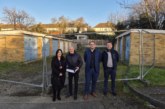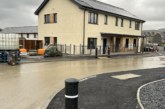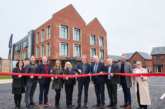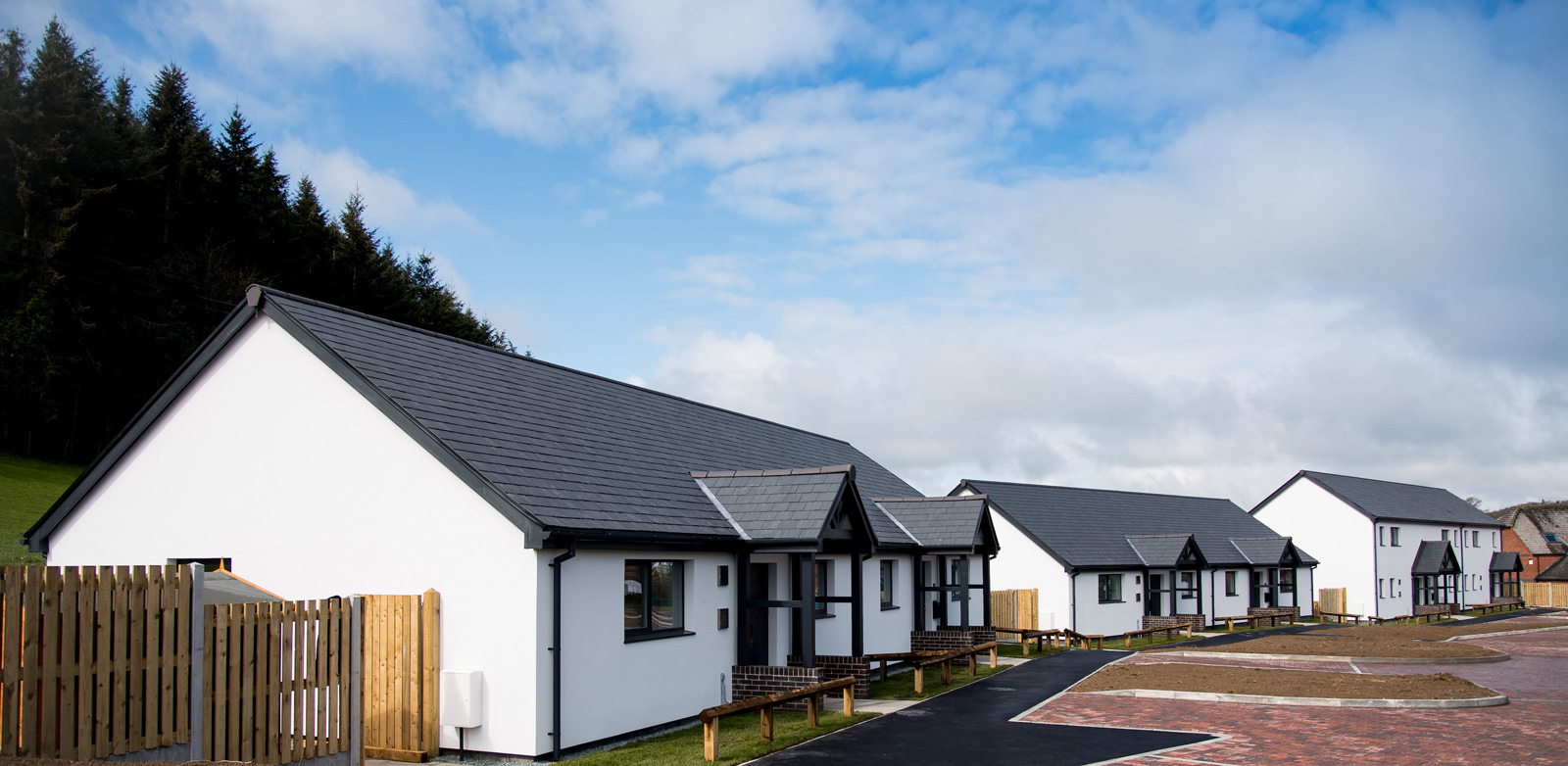
The first ever social housing scheme in Powys to reach Passivhaus standard has been completed. Pave Aways Building Contractors has handed over the seven energy-efficient homes in a £1.3m development it built in Sarn, near Newtown, to Powys County Council.
The homes — four two-bedroom bungalows, two two-bedroom and one three-bedroom houses — have all been certified to Passivhaus standard, the method of advanced low-energy construction. Final air tests in the bungalows revealed 0.27 air changes an hour with the houses registering 0.49, below the maximum of 0.6 air changes per hour required for Passivhaus certification.
The properties were built with heat recovery units to utilise the excess heat that is produced to warm the properties, thereby incurring lower heating bills. Each home also has 4.2 KW of photovoltaic roof panels to generate electricity.
Pave Aways also built the county’s first ever Passivhaus school for the council — the new Welshpool Church in Wales School that was finished in November last year.
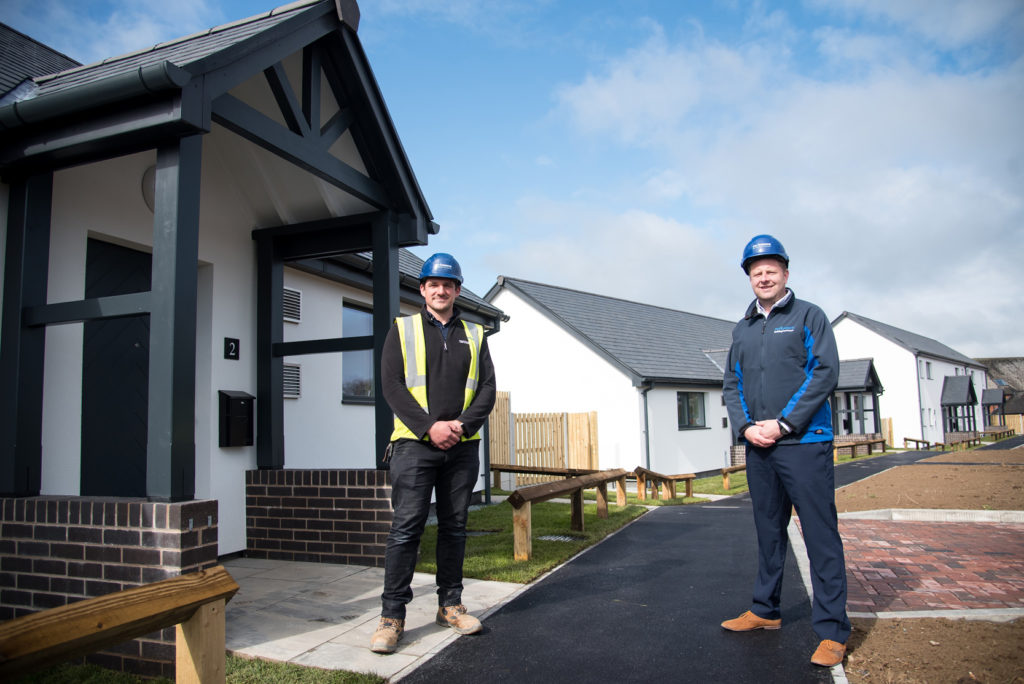
Managing Director Steven Owen said: “To have been able to deliver this ground-breaking project for Powys has been a privilege and we hope the tenants will be happy in their new homes. This is undoubtedly the way forward for new housing stock and an important step in tackling issues around climate change and fuel poverty. From an industry point of view, it’s been a valuable learning curve for our team and subcontractors, bringing new skills to the region.”
The Passivhaus housing scheme was developed by Powys County Council’s Affordable Housing Team and will help the council deliver one of its aims of Vision 2025 — to build 250 new homes by 2025.
Nigel Brinn, Powys County Council’s Corporate Director for Economy and Environment, commented: “These homes will not only help to cut carbon emissions but ensure tenants will have lower energy bills.
“The council is making real progress with its ambitious target of delivering 250 new homes by 2025 and this scheme contributes to that target. The scheme has also provided a boost for the local economy with local subcontractors and the supply chain being supported by the work.”
The project brought additional benefits for Powys with more than £1.1m spent locally, 10,500 hours of work provided on site and 4,900 hours spent on apprentices and training time through its employees and the supply chain.
Steven added: “One of our priorities is to ensure our projects have a wider reaching effect than just an economic one. The delivery of these new homes has had many benefits for the community in Mid Wales that will have a lasting legacy. New skills learned, training delivered and support to community groups have been just some of the side effects of this build.”


